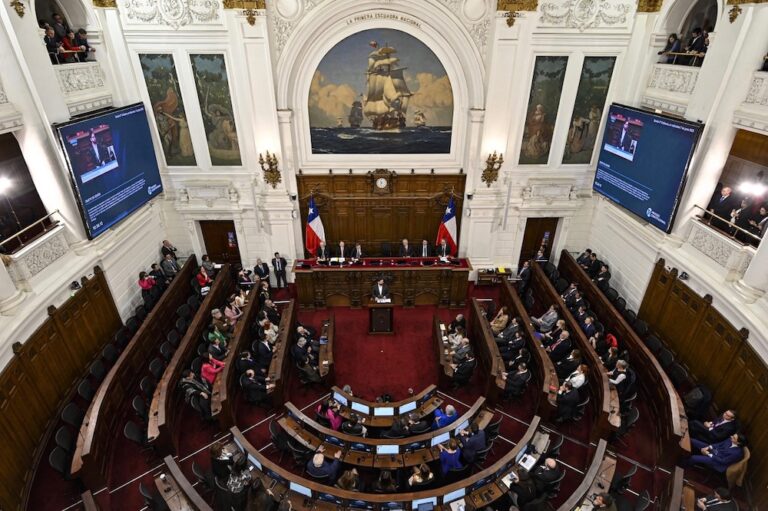(PERIODISTAS/IFEX) – On 30 October 2002, the Senate approved a bill that will eliminate censorship of films in Chile. The new law, which was passed after being debated for ten years, removes the clauses that previously enabled the Film Ratings Council (Consejo de Calificacion Cinematográfica, CCC) to ban the screening of films deemed immoral, unethical, […]
(PERIODISTAS/IFEX) – On 30 October 2002, the Senate approved a bill that will eliminate censorship of films in Chile. The new law, which was passed after being debated for ten years, removes the clauses that previously enabled the Film Ratings Council (Consejo de Calificacion Cinematográfica, CCC) to ban the screening of films deemed immoral, unethical, an affront to public order, or promoting antisocial or criminal activity.
The CCC will henceforth be responsible for implementing a new ratings system based on the moviegoer’s age. Films will fall under one of three categories: general viewing, restricted to those over 14 years old, and restricted to those over 18 years old. In addition, certain films can also receive a special CCC classification and be designated “educational”, when they are aimed at children of up to 7 years old, “pornographic” or “violent”.
In addition, under the new reform, members of the Armed Forces and the courts will no longer sit on the CCC. Instead, the CCC will now be made up of specialists in the education field, professors, film critics and representatives of the film industry.
The passing of the law will permit Chileans to view more than 1,000 films that have been banned since 1974, when the military dictatorship headed by General Augosto Pinochet installed a government that did away with constitutional rights and guarantees. Moreover, by implementing this legal reform, Chile is fulfilling one of its obligations under the international human rights treaties it has ratified.


